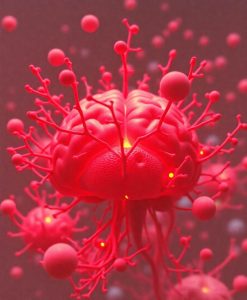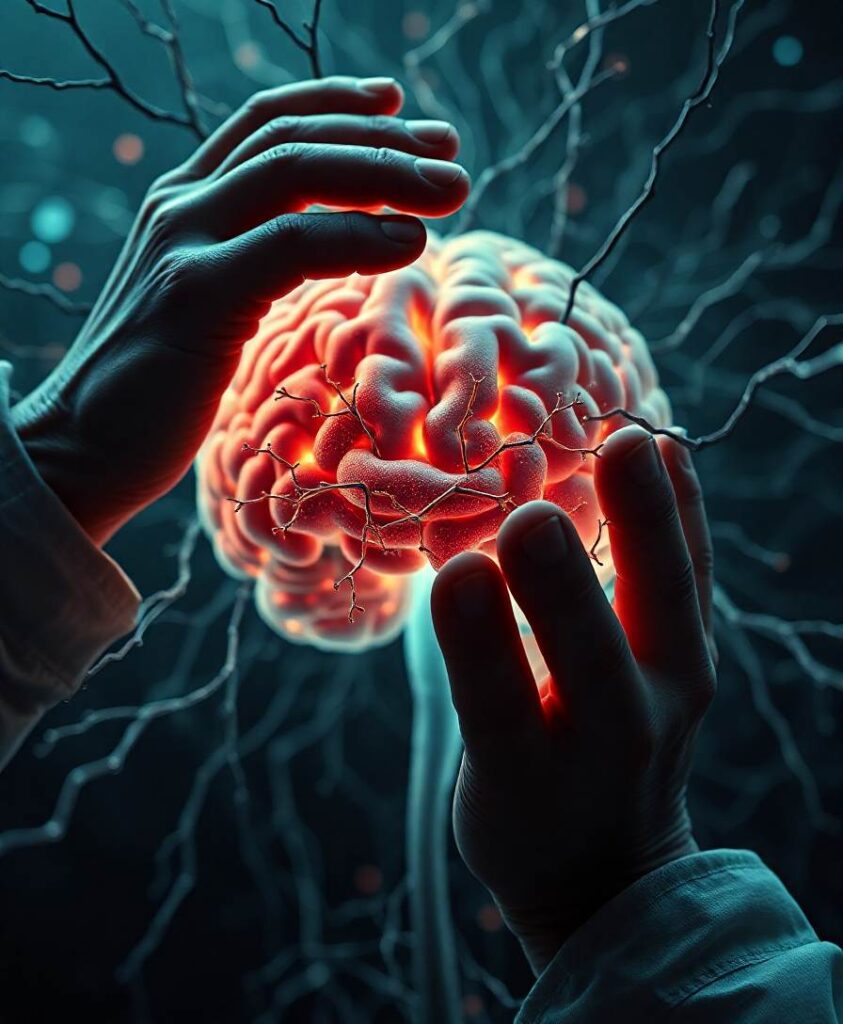—
Feeling the weight of the brain’s silent inflammation
When you think about your brain, you might picture neurons firing like tiny electrical storms, each one sending signals to keep your thoughts clear, your emotions balanced, your body moving. But beneath this energetic dance lies a quieter, more complex environment—one where support cells like astrocytes are doing more than just holding things together. These star-shaped cells, which you might not have paid much attention to before, are now revealing their double life—sometimes helping, sometimes making us feel worse.
Imagine placing your hand gently on your forehead, sensing the subtle tension that lingers even after a long day. That feeling of pressure or heaviness might mirror what’s happening inside your brain. There’s a kind of inflammation—an immune response—that, when out of control, can influence your mood, energy, and sense of hope. It’s as if a quiet internal storm is brewing, made up of cells working in ways we’re just beginning to understand.
This new research shines a light on astrocytes, the brain’s supporting cast, which have traditionally been seen as the brain’s helpers. Now, scientists see them as more active participants—regulating how brain cells communicate and, in some cases, amplifying inflammation that can lead to or worsen depression. It’s a reminder that the brain’s immune system isn’t just a defense mechanism. It’s part of the delicate balance that keeps our mental health stable.
If you’ve ever experienced that lingering sense of fatigue or emotional heaviness, it might be connected to this unseen inflammatory process. These astrocytes, which usually keep the brain running smoothly, can sometimes become overactive, triggering inflammatory responses that may contribute to feelings of sadness or despair. This is not just a chemical imbalance but an immune response that has a body-mind connection—something you can sense in your own body as you experience emotional shifts.
Understanding how these star-shaped cells influence depression opens new doors for feeling more in tune with your body’s signals. It’s like tuning into a subtle vibration, noticing how your physical sensations connect to your emotional states. When inflammation inside the brain starts to simmer, it may manifest as that foggy feeling, the lack of motivation, or the emotional weight that weighs you down.
This awareness invites us to approach depression not just as a mental or emotional issue but as a biological one rooted in complex immune activity. Recognizing the role of astrocytes in neuroinflammation might help you think about your mental health as an integrated experience—body, brain, and immune system working together. It underscores the importance of tending to your physical health, nurturing your nervous system, and listening to what your body might be telling you about internal inflammation.

By understanding that the very cells meant to support your brain can sometimes turn against your well-being, you gain a deeper compassion for yourself. It’s a reminder that feelings of heaviness or fatigue are more than just mood—they are signals from your body’s intricate system. The journey toward mental resilience can involve not only emotional work but also caring for the physical environment inside your skull.
This emerging science encourages a holistic view of depression—one that values bodily awareness, emotional honesty, and scientific curiosity. When you notice that sense of internal pressure or emotional fog, it could be a sign that your brain’s immune system is calling for attention. Recognizing this can be the first step toward gentle, informed care.
Living with or understanding depression as a response of the brain’s immune cells like astrocytes invites a new kind of compassion—toward yourself and your body. It’s an invitation to listen more deeply, to feel more fully, and to trust that your internal signals are part of a complex, adaptive system. As science reveals more about these star-shaped cells and their role in neuroinflammation, it becomes clearer that your mental health is a rich tapestry woven from many threads—emotion, biology, and embodied experience.
Learn More: How brain cells meant to help may be making depression worse
Abstract: Major depressive disorder affects hundreds of millions worldwide, but a key to understanding its origins may lie in the brain’s immune system. New findings spotlight astrocytes—previously overshadowed by microglia—as major players in neuroinflammation that drives depression. These star-shaped brain cells, once thought to only support neurons, are now shown to regulate communication between brain cells and even trigger or amplify inflammatory responses.
Link: Read Full Article (External Site)


